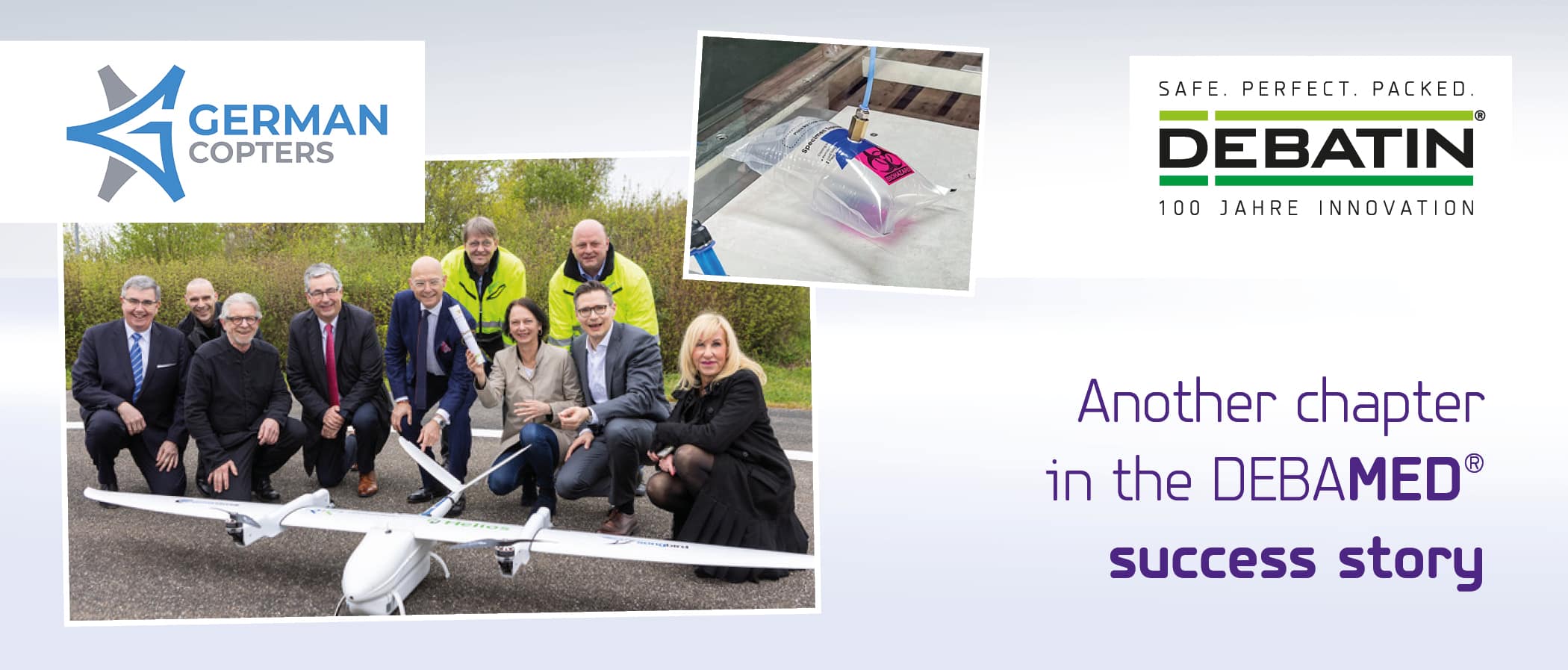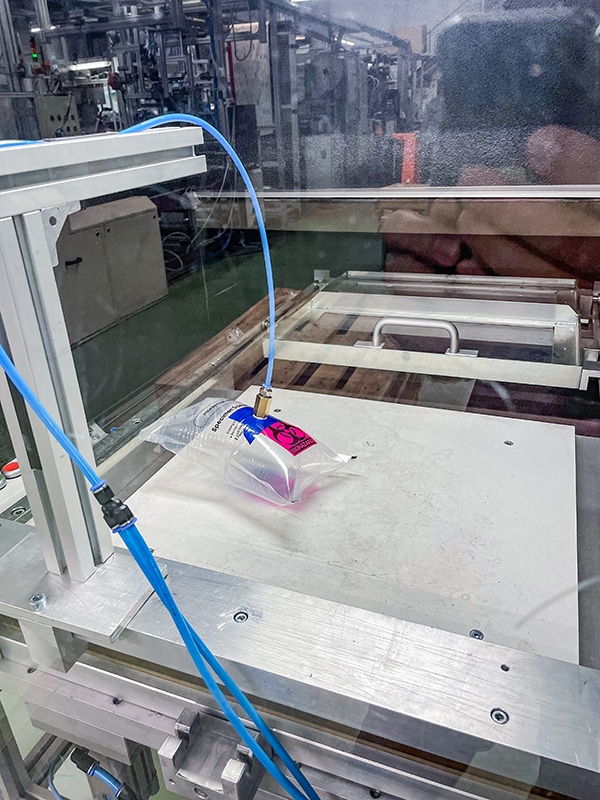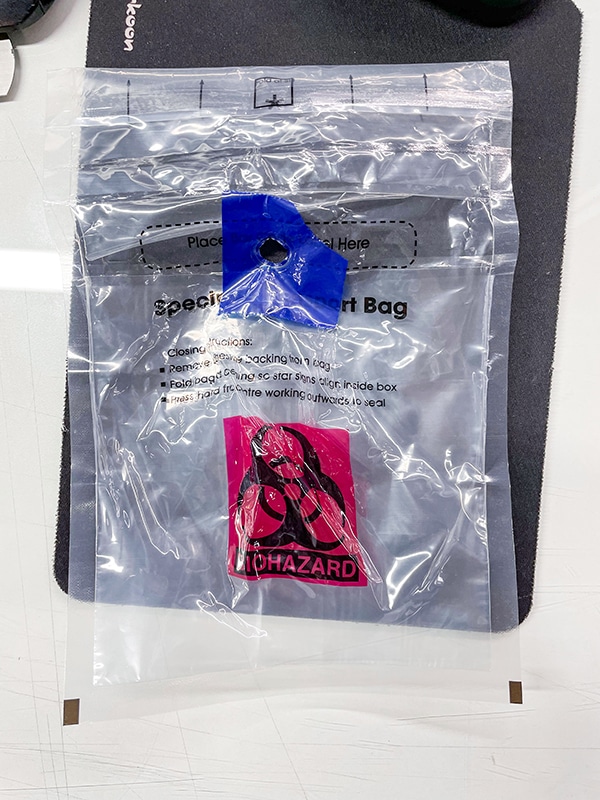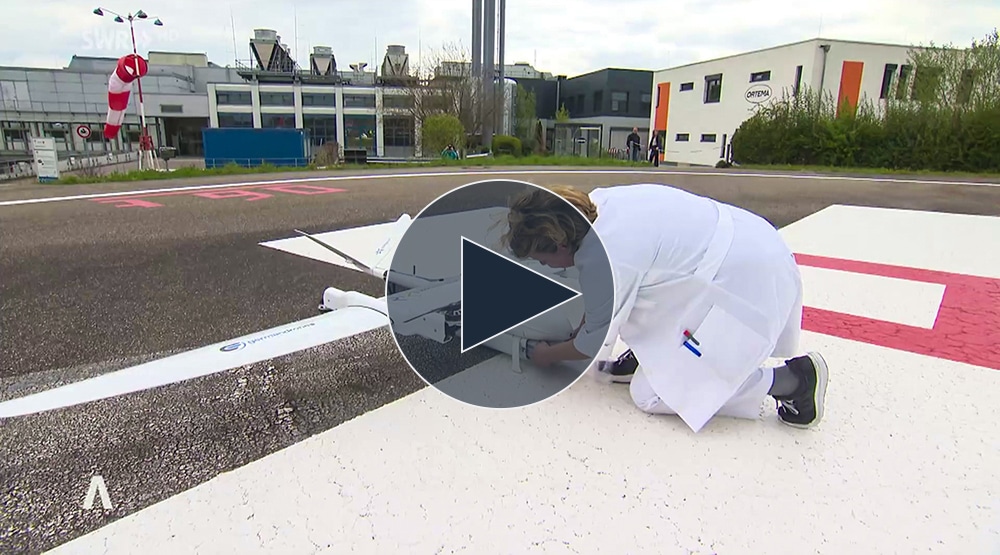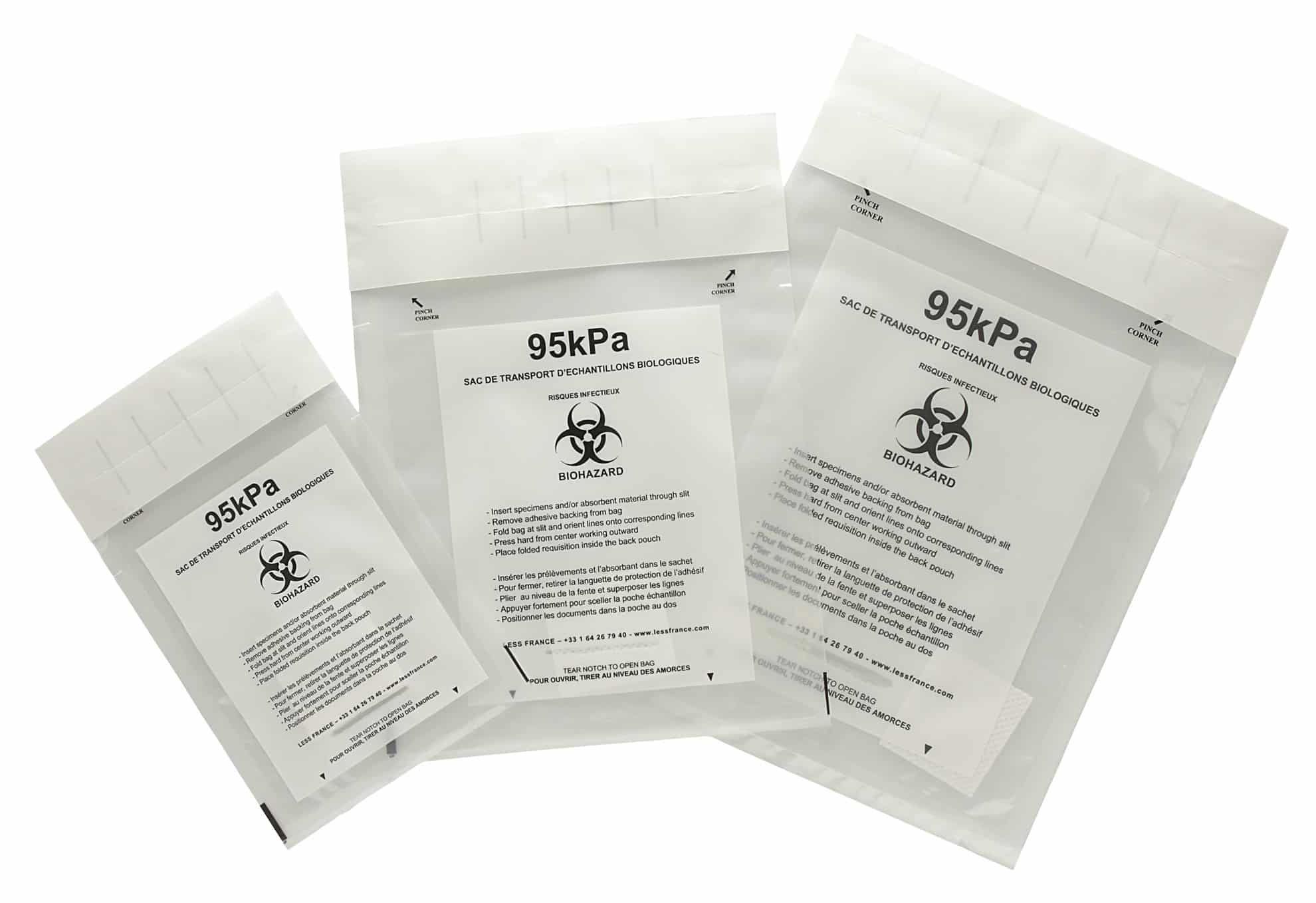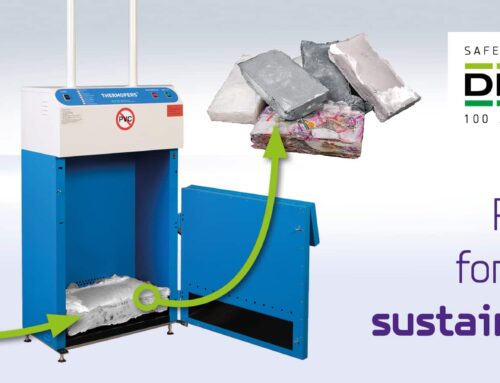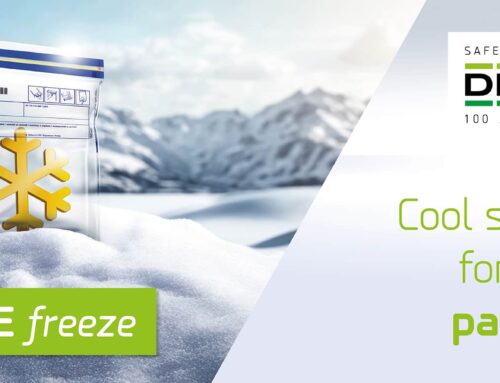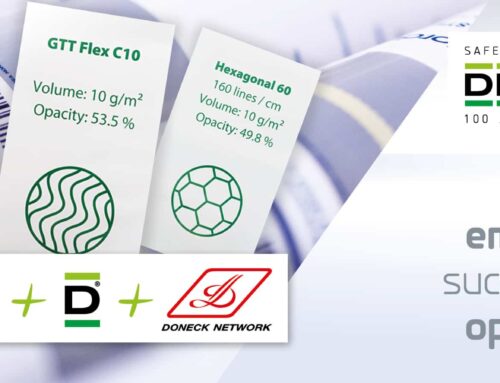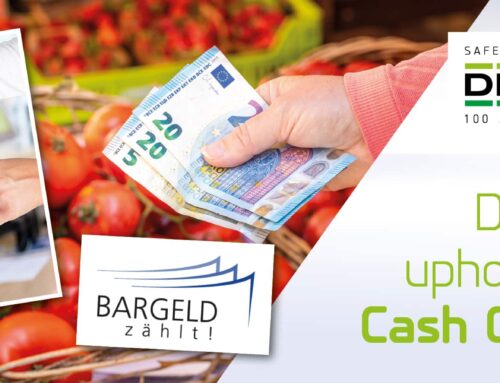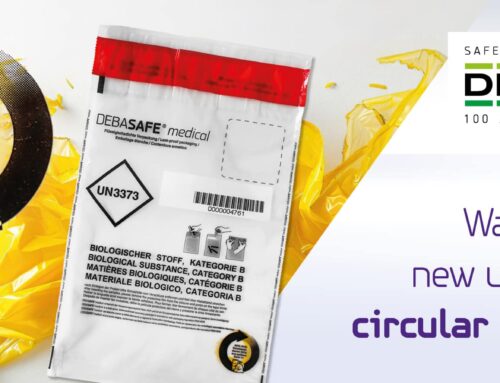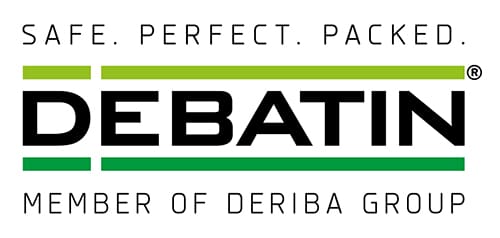Almost every day a new media report appears extolling the potential applications of drones. In fact, the tasks that the media enthuses about – tasks like measuring large areas with millimetre precision, using internal cameras, or deploying built-in sensors to analyse air quality in hard-to-reach places – are not the only important uses for drones. Unmanned aerial vehicles can also be used for transportation. For example, in the medical sector, they can be used for transporting samples.
DEBATIN develops probably the safest solution in the world, for sample transportation
Holger Schulze, CEO of German Copters DLS GmbH, explains Anton Debatin GmbH’s role in the novel technology: “We have poured a huge amount of time and money into developing packaging solutions over the last few years. But it was only when we started working with Anton Debatin GmbH that we finally succeeded in creating a solution that integrates seamlessly into our workflow, is economically viable, and also meets all the safety requirements that are so essential for drone transport of dangerous substances. Indeed, I can confidently say that we have now got the safest solution, probably in the world, for transporting medical samples by drone.”
How did the solution come about? Hospitals are turning more and more to centralised laboratories, which means samples are being transported more often, and further. The goal was to use drones for some of these transportation tasks – for example, to carry medical samples long-distance from hospitals to labs. “This approach seemed ideal,” explains Holger Schulze, “since drones are faster, more flexible, and much more climate-friendly than the two-tonne lorries fitted with combustion engines that we’ve been using to date to transport, say, a mere 3 kg of lab specimens or biological samples by road.”
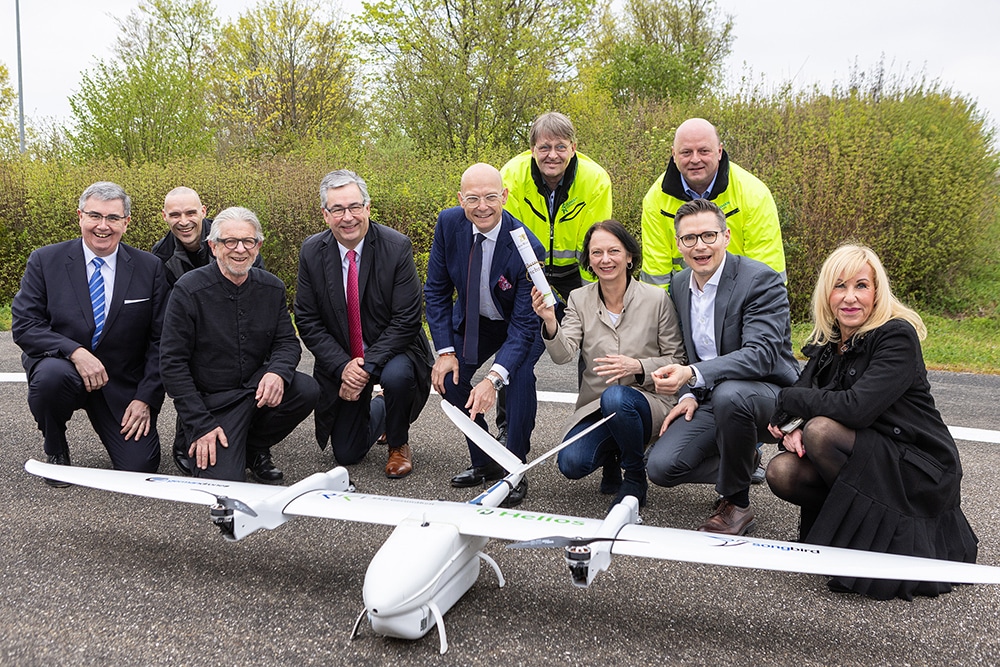
RKH Kliniken, Photographer: Benjamin Stoltenberg
Challenges for transporting dangerous substances by drone
As Schulze reminds us, the law has stringent requirements when it comes to transporting medical products and samples or specimens. Most such substances are classified as dangerous goods. “The term certainly sounds dramatic,” he acknowledges. “In fact, any substance that ‘comes from’ or is extracted from a human is classified as potentially dangerous”. A whole host of laws, regulations and standards have to be applied to such substances, including UN 3373, packaging instruction P650, IATA requirements (International Air Transport Association), and many more. The situation is complicated further by the fact that the German Air Traffic Ordinance (Luftverkehrsordnung, LuftVO) prohibits the transport of dangerous goods classified by the German Biological Substances Ordinance (Biostoffverordnung) into classes 2 to 4. Holger Schulze explains why: “If these substances are dropped or released, this could lead to people taking fright, and possibly general panic.”
That’s where Anton Debatin GmbH came in, with its innovative spirit and engineering skill. DEBATIN developed a packaging solution that is demonstrably safe: even under the most unlikely of worst-case situations, the dangerous goods cannot be released during the sample transportation process. Our popular white paper on P650 is testimony to DEBATIN’s expertise and familiarity with the regulations.
Innovative solutions from Anton Debatin GmbH
DEBATIN’s CEO Thomas Rose reflects on the development process leading up to this latest success for his company: “DEBATIN worked together with Stuttgart-based German Copters GmbH to develop this extremely safe packaging solution for sample transportation.” The innovative technology made its way to German TV – you can read the Südwestrundfunk report (in German) here:
The partnership for developing the new packaging solution perfectly integrated the companies’ specialisms: German Copters brought thirty years of experience in logistics on the ground and seventeen years of drone development; Anton Debatin GmbH contributed its technical expertise and innovative approach.
The new product will soon be in action in the German skies. The first drones carrying the Anton Debatin GmbH packaging are expected to take off over Baden-Württemberg in August 2023, forming a new link in the logistics networks of the RKH Gesundheit and Helios health centres. “Two years of painstaking work in a consortium comprised of the Helios health centres, RKH Gesundheit and German Copters DLS is paying off,” declares Holger Schulze enthusiastically.
Drones are part of the transition to “green logistics”
Cornelia Frenz, Director of Operative Management at RKH Gesundheit, is equally enthusiastic about the operating license: “New, innovative concepts such as drone-based logistics can help us achieve our primary goal, namely, improving the quality of our medical treatment, and thus benefit our patients.”
Enrico Jensch, COO of Helios, contributes his approval: “We’re the first companies in Europe to be granted permission to use drones as part of our logistics chain in the medical sector. Once again, we’ve demonstrated the innovative spirit we nurture here at Helios. Transporting blood or tissue samples by air is faster, more reliable, and more planet-friendly than road transport. It reduces our dependency on the road networks and opens up entirely new possibilities in terms of laboratory locations and how we use our labs.”
Dr Oliver Tröber, Innovation Manager at DEBATIN, adds: “As part of our DEBAMED® range, we provide packaging for the healthcare sector that meets all international and European standards and guidelines for transporting infectious substances (ADR – IATA – WHO – packaging instruction P650). Our waterproof sample bags are able to withstand internal pressure of up to 95 kPa (0.95 bar / 14 psi), without leakage or loss of content.”
DEBATIN’s CEO Thomas Rose is also delighted about the cross-sector partnership with another innovative company: “With our packaging, we are always a part of the logistics process – not just for sample transportation. We didn’t just contribute our own skills and knowledge to the partnership with German Copters: it was also a fantastic learning opportunity for us and we’ve been able to grow our expertise, which will help us create new solutions for the healthcare sector.”

